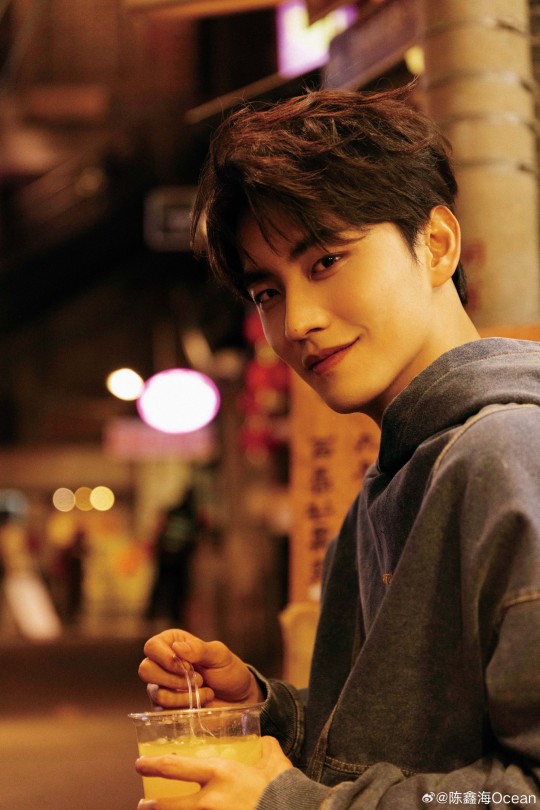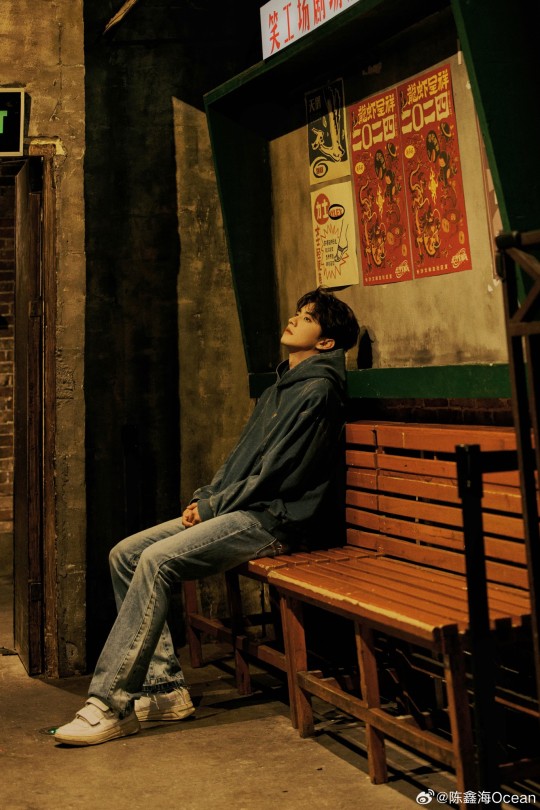#Chen Xinhai
Photo

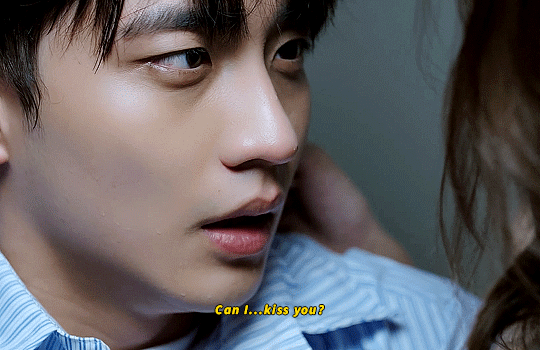

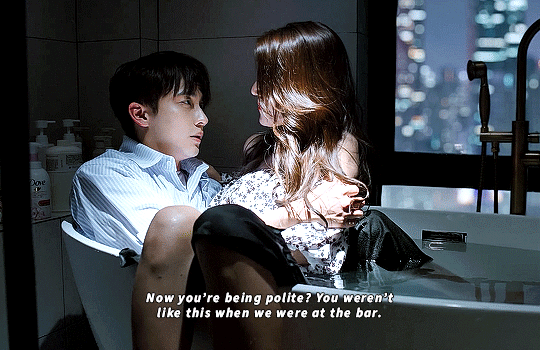
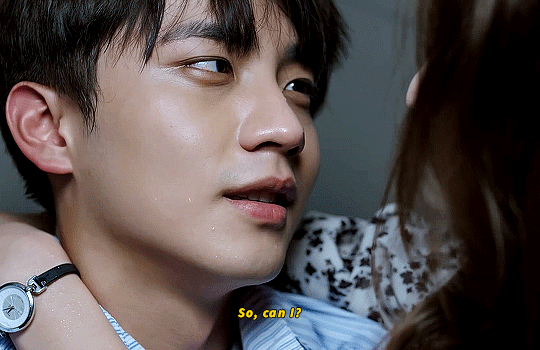



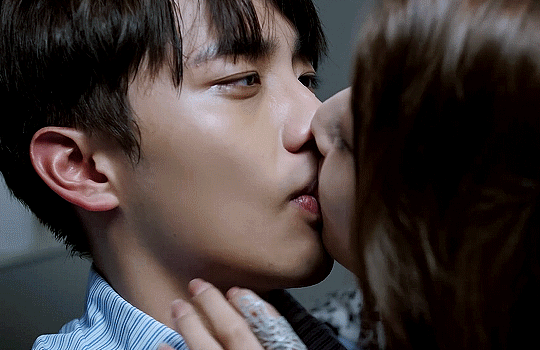

THE LOVE YOU GIVE ME 你给我的喜欢 (2023)
dir. Ding Yingzhou | 1.11
#the love you give me#你给我的喜欢#cdramaedit#chineseartistsinc#userdramas#cdramasource#asiandramanet#udeokmis#tuseralexa#useryd#userstorge#userxlh#belsmultifandommess#chen xinhai#ma xinrui#cdrama#rosiegifs#m:tlygm
304 notes
·
View notes
Text
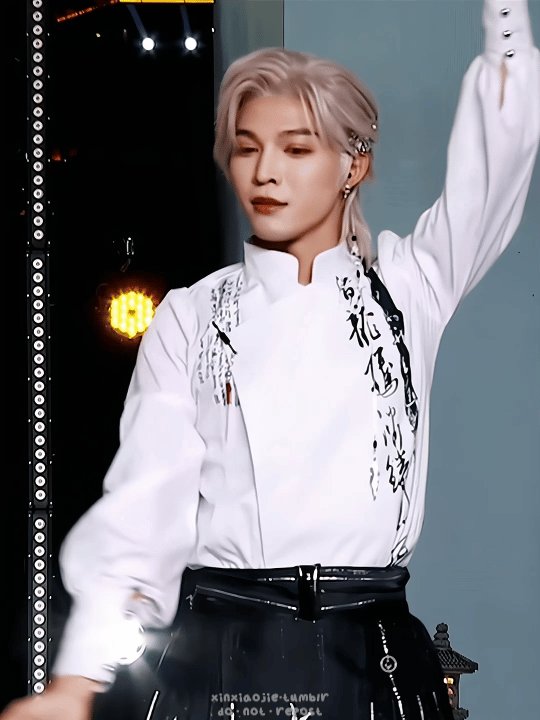

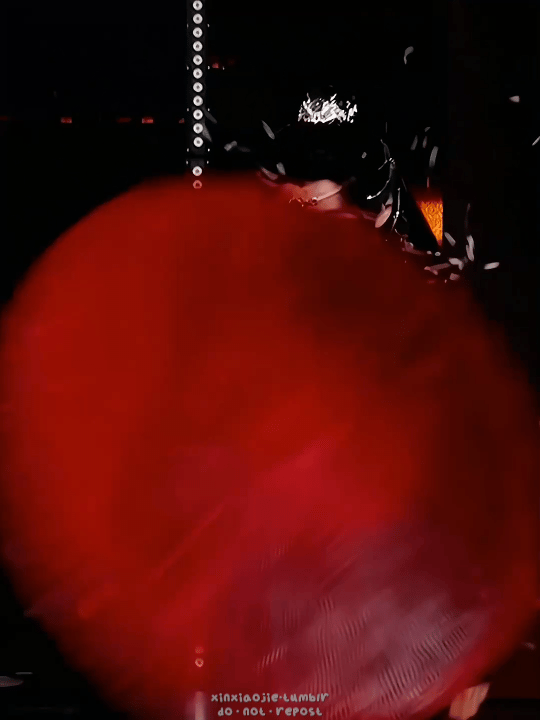

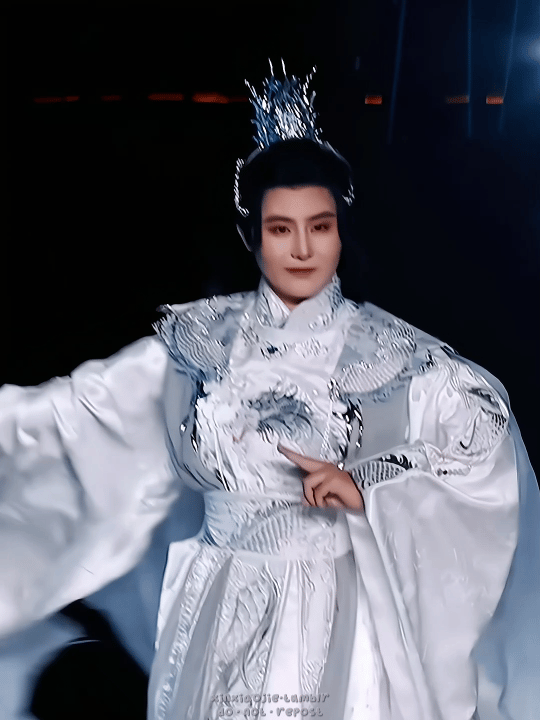
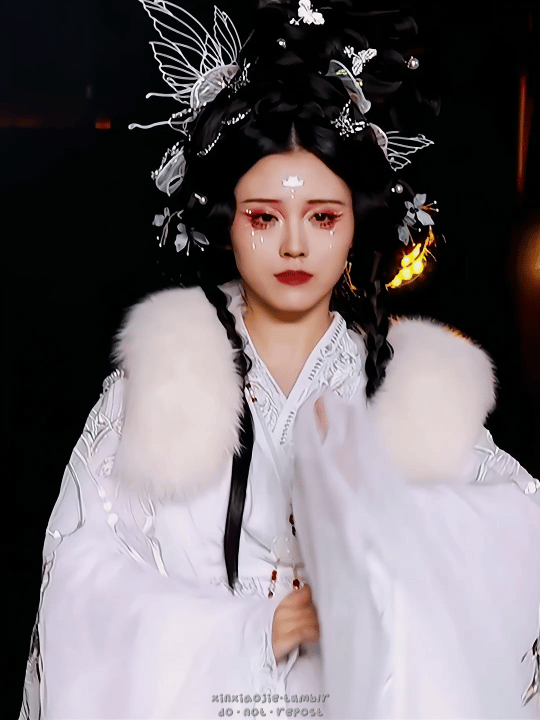


风雅司制 FENG YA SI ZHI HANFU for 国风大典
#国风大典#hanfu#chinese fashion#chineseartistsinc#chinesemedia#caps#cactor#陈鑫海#Chen Xinhai#ah ha heres some mens hanfu 🖤 (the “men” arent holding hands like the girlies are unfortunately lol#clicked around the internet for the whole night found all the models names finally😭🙏
133 notes
·
View notes
Text

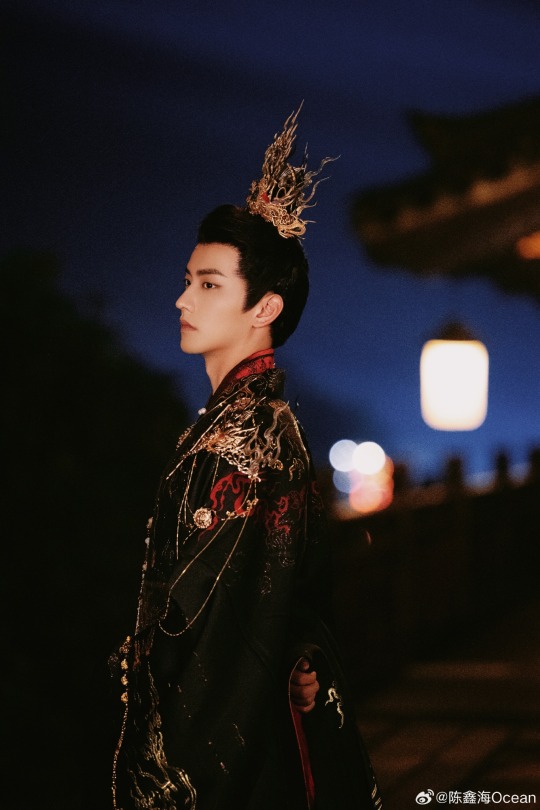
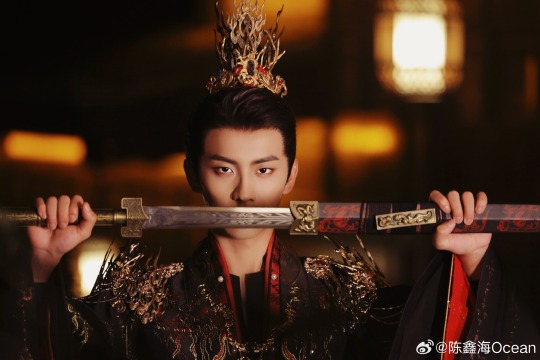
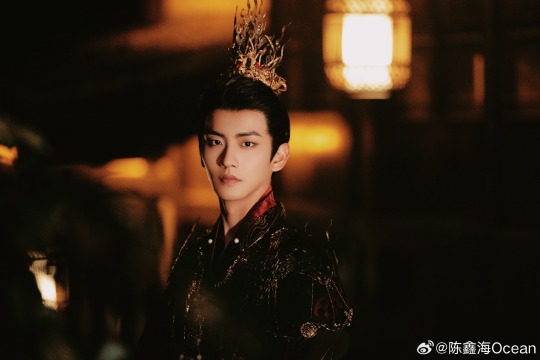
Chen Xinhai for 2023 国风大典
36 notes
·
View notes
Text
The Love You Give Me (你给我的喜欢) - Whump List

Whumpee : Xin Qi Played by Wang Zi Qi and Chen Jia Jun played by Chen Xin Hai
Synopsis : Five years ago, a young woman named Min Hui accidentally fell for a young man named Xin Qi. But things between them were complicated and they broke up. Now, five years later, they are reunited at a business event in the most uncomfortable of situations. It is revealed that Min Hui has a son, who is suffering from the same exact heart condition as Xin Qi making him realize through a series of events that he's the father. After some heart to heart conversations, explanations, and even a quirky living arrangement, can these two forgive each other and themselves for the mistakes they both made in the past and rekindle their love, now as a fully evolved family? (MDL)
Genres : Comedy, Romance
Warning! Possible spoilers below!

Xin Qi
Ep 1 : None
Ep 2 : (Flashback) Running, suddenly in pain, grabbing his chest
Ep 3 : Blood sugar dropping, feeling unwell — Agitated, teary-eyed
Ep 4 : Pinned against a wall — (Flashback) Unconscious in a hospital bed — (Flashback) Suddenly in pain, holding his chest, concern for him, collapses — Learns that he has a son, shocked
Ep 5 : (Flashback) Unconscious in a hospital bed, wakes up
Ep 6 : Caught a cold (just a bit of coughing)
EP 7 : A bit manhandled (semi-comedic), wincing in pain while holding his neck
Ep 8-10 : None
Ep 11 : (flashback) sitting on the floor, concern for him, says he was feeling unwell
Ep 12 : Stays for a day at the hospital for a health check-up
Ep 13-15 : None
Ep 16 : (Flashback) Angry, in pain, grabbing his chest, concern for him, collapses, passes out
Ep 17-18 : None
Ep 19 : Has a heart problem while swimming, grabbing his chest, concern for him
Ep 20 : In pain for a short moment, grabbing his chest — Pretends to be in pain, concern for him
Ep 21 : Twists his wrist, ice applied — Suddenly in pain, collapses on the couch, grabbing his chest, concern for him, make it look like a joke even though his is really unwell — Is staying at the hospital for a checkup — Tries to hide the fact he is in the hospital and fails — Concern for him
Ep 22 : Looked after at home
Ep 23-25: None
Ep 26 : Glass smashed on his arm — Bruise on his arm
Ep 27 : Gets bad results after a check up at the hospital, hides it from his loved ones — Worried for someone — Problem with his heart, looking unwell, collapses, concern for him
Ep 28 : At the hospital, weak, concern for him, crying — Will have to undergo surgery

Chen Jia Jun
Ep 2 : Hit by a car (lightly), falls from his bike, concern for him, leg in pain — Examined at the hospital, in pain, walking on crutches — Asleep in a hospital bad, leg in a cast
Ep 4 : in a wheelchair, still at the hospital, almost falls from his chair, grabbed — Accidentally bumps his injured leg — Walking with a crutch, helped to sit
Ep 5 : Leg still in a cast, falls down the stairs, bumps his injured leg (semi-comical), scratch on his face treated — Arm in a sling
Ep 6 : Leg still in a cast
Ep 7 : Leg still in a cast
Ep 16 : Crying — Angry outburst
Ep 17 : Crying
>> More Whump Lists
97 notes
·
View notes
Photo

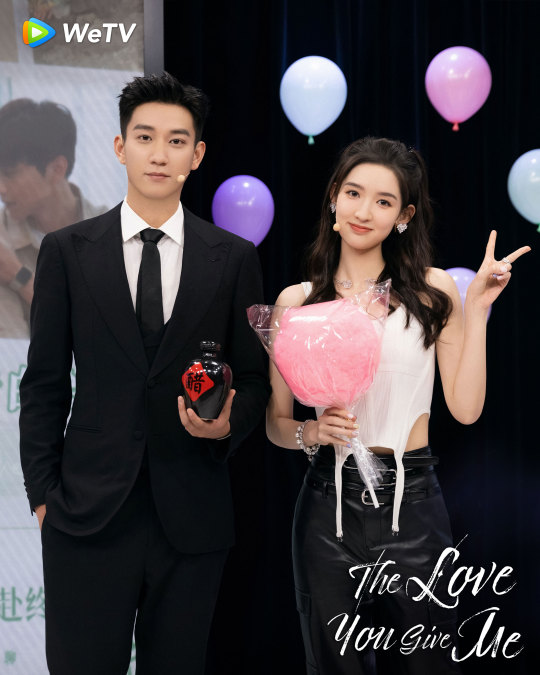

The Love You Give Me cast for WETV.
#the love you give me#cdrama#wang yuwen#wang ziqi#cui yi xin#ma xin rui#chen xinhai#cactors#cactress#cactor
30 notes
·
View notes
Photo
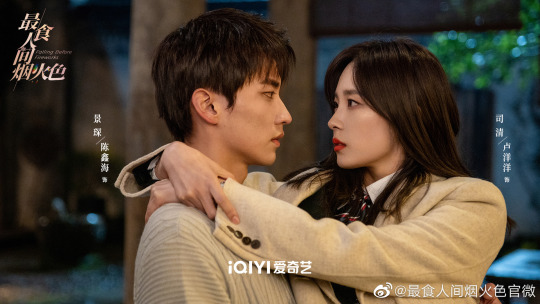
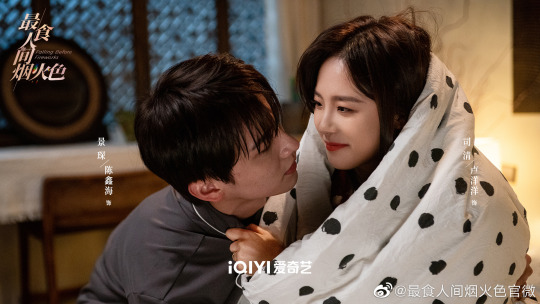

© 最食人间烟火色官微
5 notes
·
View notes
Photo
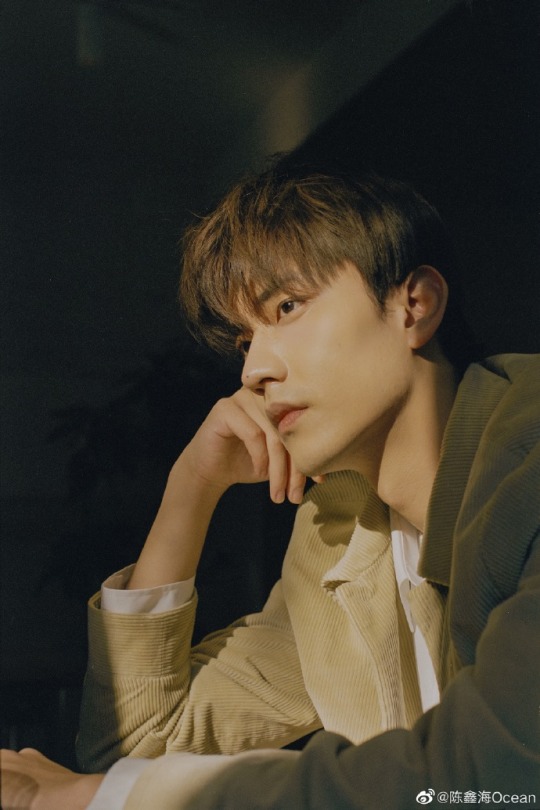


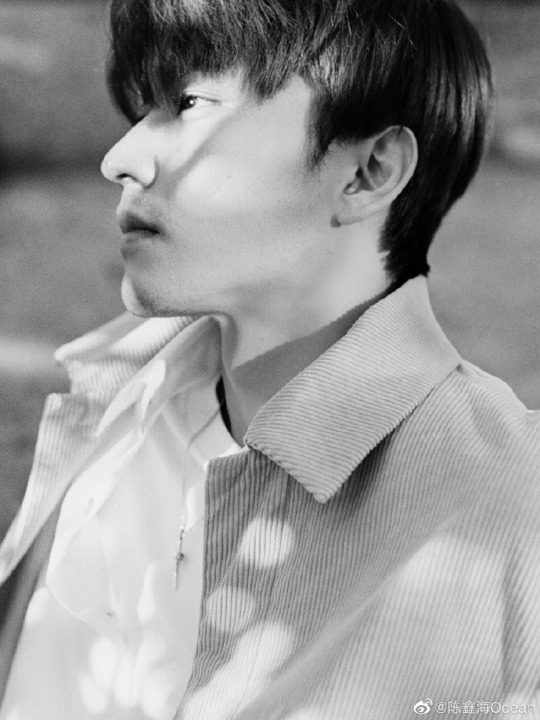

陈鑫海Ocean
7 notes
·
View notes
Text
Assistir Filme 1911 - A Revolução Online fácil
Assistir Filme 1911 - A Revolução Online Fácil é só aqui: https://filmesonlinefacil.com/filme/1911-a-revolucao/
1911 - A Revolução - Filmes Online Fácil

O centésimo filme do ator Jackie Chan, 1911, é um tributo aos 100 anos de aniversário da revolução de 1911. O filme “1911″ tem uma constelação de estrelas, porém deve-se ressaltar que Chan dirigiu, produziu e atuou no mesmo, o filme é uma crônica sobre a revolução artística, conhecido na China como a Revolução de Xinhai, que começou em 1911 e, finalmente, terminou a última dinastia feudal da China. Chan, que descreve o filme como uma combinação de história, ação, guerra e romance, trouxe mais de 70 celebridades para o elenco. Estes incluem Li Bingbing, Winston Chao, Joan Chen, Ning Jing, Yu Shaoqun, e seu filho, o ator-cantor Jaycee.
0 notes
Text
The way Chen Junhao improvised a song for Chen Xinhai to cheer him up made my heart swell
#i almost cried it was so beautiful#the boys supporting each other is honestly what im here for#we are young#snzm#chen junhao#chen xinhai#precious boys are precious#this was the best part of the episode
1 note
·
View note
Photo
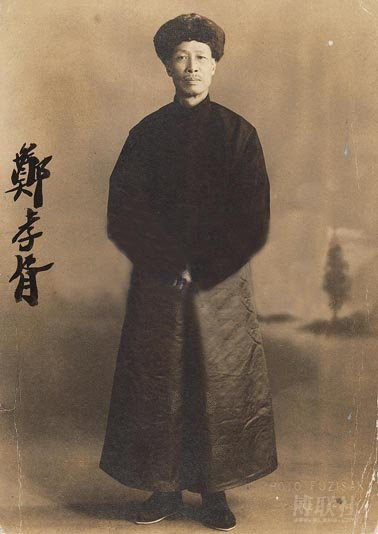
Figure 1. Zheng Xiaoxu’s Portrait (from The Mad Monarchist)
Graduate Research: Chinese Scroll and Fan Work, Part 9
This week we turn our eye to two undated couplets (Figures 2 and 3) by Chinese statesman, diplomat, and calligrapher Zheng Xiaoxu (1860-1938, Figure 1) from our Zhou Cezong Collection of Chinese scroll and fan work.
According to celebrated Chinese writer Lin Yutang (1895-1976, twice nominated for Nobel Prize in Literature), in appreciating Chinese calligraphy, “the meaning is entirely forgotten, and the lines and forms are appreciated in and for themselves.” Thus, let’s skip the literal meaning of these two couplets and just focus on their lines and structures. And hopefully, this focus will help us to date them.

Figure 2. UWM Special Collections (cs 000004)

Figure 3. UWM Special Collections (cs 000054)
In 1889, Zheng became the protégé of Weng Tonghe (1830-1904), who was Guanxu Emperor’s teacher and one of the most supportive figures of the Hundred Days’ Reform. Influenced by Weng’s artistic taste, Zheng regarded the calligraphy of Tang Dynasty calligrapher Yan Zhenqing (709-785) as a model. In one Zheng’s early calligraphic examples (Figure 4), he exhibited a distinctive, plump, and powerful stroke with a well-knit, balanced structure, which is similar to Yan’s Record of Duobao Pagoda (Figure 5, the forefather of brushwork in standard writing) written in 752. In addition, Zheng imitated Yan’s round brush by adopting “hiding” and “protecting” movement of the brush tip (according to ancient calligraphic theorist Cai Yong, calligraphers should “hide the head” and “protect the tail” of the brushstroke). However, because the turn and thrust is limited, the image is static and frontal, confined to a flat linear schema, and showing rigidity and lassitude.

Figure 4. Zheng’s Early Calligraphy (from this source)
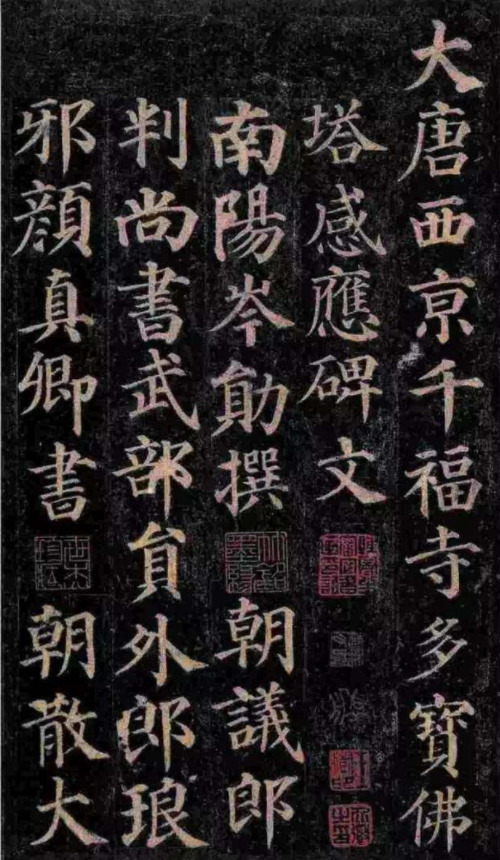
Figure 5. Yan Zhenqing’s Record of Duobao Pagoda (from this source)
Immediately after Xinhai Revolution in 1911, Zheng spent some time in Shanghai with his boon companions such as Chen Sanli, whom I discussed in a previous post, and Shen Zengzhi, whose cursive hanging scroll is also preserved in our Zhou Cezong Collection. During this period, he maintained an eclectic interest in ancient calligraphic rubbings, such as those from stone inscriptions, epitaphs, Buddhist votive stelae, and cliff engravings created in the Han (202 BC-220 AD) and Northern Dynasties (386-581). Our first couplet in Figure 2 is the epitome of his inclusive studies of the stelae. For instance, the longest horizontal stroke of 寺 (Figure 6) presents a dramatic thinning-and-thickening brush movement, which is akin to brush style of the horizontal line in下(Figure 7) from the Stele on Ritual Implements in the Confucian Temple (Liqi Stele, dated 156 CE). According to Yang Shoujing (1839-1915), whose work is also preserved in our collection, this stele has an eccentric instability concealed in the level-headed stability; and a strict denseness hidden in the elegant sparseness. Zheng’s 寺 is the symbol of this contradictory yet complementary comment. Another example of Zheng’s cross-fertilization could be detected in the character “分” and “明” in Figure 8. The rigid 丿 in “分”, and the rugged 𠃌 in “明” can find similar genealogical traits from their counterparts in Figure 9, which is from Yang Dayan Zao Xiang Ji created around 506 AD. Here, Zheng’s previous flat schema has been transformed to some contrasting variations in a sense of two-dimensionality, bringing vitality to the works. Nevertheless, the rigidity still permeates; and ruggedness is also his Achilles’s heel, indicating a smidgen of strenuousness, which is at variance with Chinese artistic standard of naturalness.
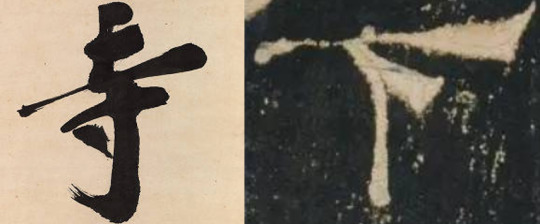
Figure 6: Detail from Figure 2. Figure 7: From Liqi Stele (Palace Museum Collection)

Figure 8: Detail from Figure 2. Figure 9: From Yang Dayan (Harvard Collection).
From 1906 to 1907, during the excavation in the deserts of Northern China, Sir Marc Aurel Stein found a group of wooden slips with calligraphic inscriptions written around 98 BC. In 1912, his friend Édouard Émmannuel Chavannes sent the copy of these slips to Luo Zhenyu (1866-1940), whose couplet scroll in Oracle Bone script is also preserved in our Zhou Cezong Collection. Luo invited Wang Guowei (1877-1927, Liang Qichao’s friend), a great sinologist, to collate, edit, and interpret those slips, which became the famous monograph entitled Liu Sha Zhui Jian (The Lost Wooden Slips Excavated in the Flowing Sands) published in 1914.
When Zheng saw this publication, he was enchanted by the calligraphic values of these slips, as he contended that with the finding of these slips, the secrecy of calligraphy would be thoroughly revealed. Generally speaking, compared with the standardized clerical writing in Figure 7, the running or cursive characters on these slips were rendered with undulation and flexibility (see Figure 10 and 11), devoid of axial balance and austere sublimity. By turning and flicking the brush in a silent pirouette on the paper, the slip writer constantly changed in speed and direction, suggesting a strong foreshortening and movement in space. This untrammeled style significantly enlivens Zheng’s artistic idioms. In Figure 12, the slanting angle and the flaring, wavelike motion of the second horizontal stroke bears uncanny resemblance to those of the first horizontal stroke in Figure 10. The brush is fully articulated in a vivacious spontaneity, carrying a natural three-dimensionality.

(From left to right) Figure 10: From Luo Zhenyu, Liu Sha Zhui Jian, p. 65. Figure 11: From Liu Sha Zhui Jian, p. 64. Figure 12: Detail from Figure 3.
From these three works, Zheng shows his audience the evolution of his mimetic representation. For the first phrase (Figure 4), his imitation of Yan was restricted by insipid flatness and slight flexure. After 1911, his exploration to ancient stele rubbings (Figure 2) gave his works a contrasting vitality, though the rigidity still lingers. For the final phrase (Figure 3), the pristine style of the wooden slips provided him a fresh impetus to awaken his vivacity, creating organic relationship in the image.

Figure 13. Three Greek Statues (from ca. 560 BC to 480 BC)
From Wen C. Fong, Art as History: Calligraphy and Painting as One (New Jersey: Princeton University Press, 2014), p. 113.
The art historian E. H. Gombrich once made a similar-style comparisons for a group of ancient Greek statues (Figure 13). Naming them as the representation of the “Greek miracle” which illustrated the advancement of Western European civilization, he indicated in pictorial representation, archaic art began from restricted frontal schema, and then moved to the gradual adjustment to the natural appearances. This phenomenon can be equally applied to analyze Zheng’s work, which could be seen as his gradual accumulation of corrections due to the observation of ancient artworks.
Chinese art historian Wen C. Fong proposed the possible reason for this phenomenon. He noted that the disillusionment of the ancient literati with Chinese politics made them “turn away from the world of human affairs” and sought spiritual solace in the pursuit of artistic and literary expression. The impulse to express themselves in art led to the enlivening of Chinese art and civilization. Zheng is the exemplar of this explanation. He was once a most celebrated constitutionalist in the late Qing. After 1911, he lived in Shanghai as a loyalist to the defunct Qing Dynasty until February 1924, when he went to the Forbidden City to serve as a trusted advisor to Puyi (the last Chinese emperor, 1906-1967). Within these thirteen years, he became disillusioned with politics, and began to regard art as his safety valve, thereby pushing the boundaries of his artistic practices.
From these analyses, we can hypothesize that these two couplets in Special Collections were created during the same period of time (1911-1924). Figure 2 was created first, foretelling the coming of the more mature style in Figure 3. Most importantly, these analyses give us a good example to see how the student and scholar of Chinese calligraphy may use brushstroke and structure as evidence to evaluate, authenticate, and date artworks.
After Puyi and Zheng were evicted from the palace in November 1924, they settled in the Japanese concession of Tianjin. In 1931, under Zheng’s arrangement, Puyi went to Manchuria and became the leader of the Manchurian state, Manchukuo. Zheng became the regime’s Prime Minister with Japanese support. This collaboration with the Japanese tarnished the reputation of Zheng’s previous political and artistic achievements.
– Jingwei Zeng, Special Collections graduate researcher.
#graduate research#Jingwei#Chinese scrolls#Chinese calligraphy#Chinese art#Zheng Xiaoxu#Yan Zhenqing#Chinese politics#calligraphy#art history#couplet#Zhou Cezong Collection#Tse-Tsung Chow Collection
34 notes
·
View notes
Photo
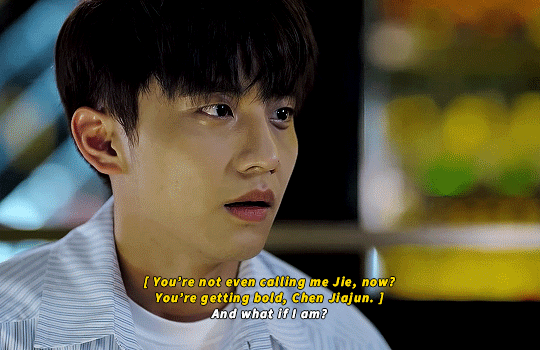


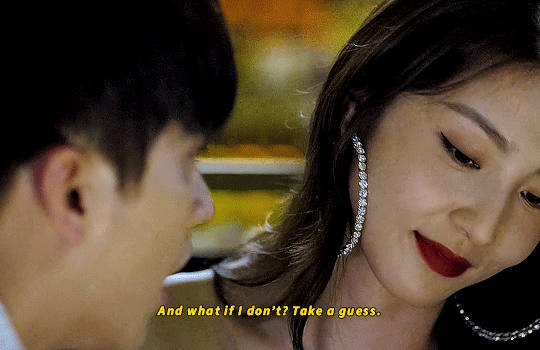
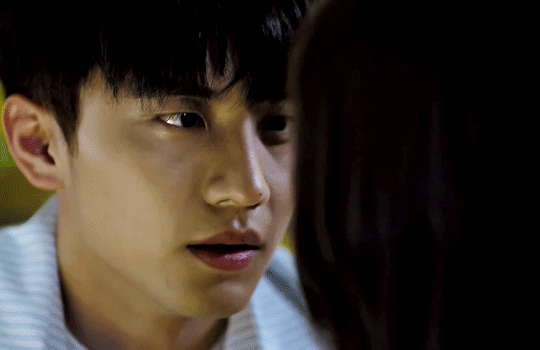


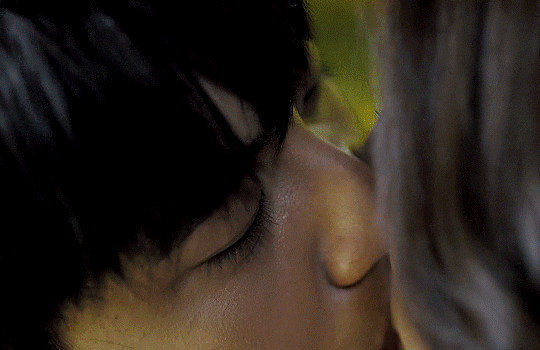

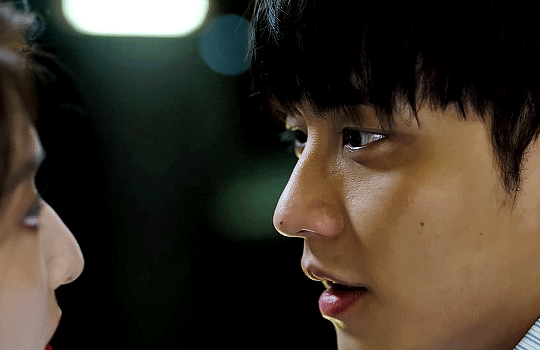
THE LOVE YOU GIVE ME 你给我的喜欢 (2023)
dir. Ding Yingzhou | 1.11
#the love you give me#你给我的喜欢#cdramaedit#userdramas#chineseartistsinc#cdramasource#asiandramanet#udeokmis#useryd#tuseralexa#userxlh#userstorge#chen xinhai#ma xinrui#cdrama#rosiegifs#m:tlygm#PLS HIS SMILE IN THE LAST GIF
100 notes
·
View notes
Text
Annals of Taihe 23 (499)
[From WS007. The end of an era.]
23rd Year, Spring, 1st Month, wuyin, New Moon [28 January], at court the crowd of subject, as the Emperor's illness was cured, sent up their long-life wishes. A great banquet at the Chengluan Hall.
On renwu [1 February], favoured Ximen Bao's Shrine. Thereupon went past Zhang River and turned back.
Xiao Baojuan dispatched Grand Commandant Chen Xianda to rob Jing province.
On guiwei [2 February], decreed the General of the Van, Yuan Ying to chastise them.
On yiyou [4 February], the Chariot Drove to issue out from Ye.
On wuxu [17 February], arrived from Ye.
On gengzi [19 February], reported to the temple and the altar of soil
On guimao [22 February], acted out the rite of drinking to the arrival and recording the achievements.
On jiachen [23 February], a great amnesty Under Heaven.
The Grand Guardian, the King of Qi commandery, Jian, passed away.
2nd Month, xinhai [2 March], used the Senior Combined Grand Commandant, the King of Xianyang, Xi, as Principal Grand Commandant.
On guihai [14 March], used the Great General of the Central Army, the King of Pengcheng, Xie, as Minister over the Masses. Restored the King Leling, Siyu, to his original fief.
On guiyou [24 March], Xianda, attacked and captured Maquan Defence Post.
3rd Month, gengchen [31 March], the Chariot Drove on a southern offensive.
On guiwei [3 April], stayed at Liangcheng.
On jiashen [4 April], since Shunyang was being besieged, and was imperilled and hard-pressed, decreed the General who Exerts the Martial, Murong Pingcheng, to lead 5 000 cavalry and hurry to them.
On bingxu [6 April], the Emperor was not at ease. The Minister over the Masses, the King of Pengcheng, Xie attended on the illness within the forbidden quarters, and moreover administered the hundred measures.
On dingyou [17 April], the Chariot Drove to arrive at Maquan. Decreed the Great General who Conquers the South, the King of Guangyang, Jia, to break off Junkou, and intercept Xianda's return path.
On wuxu [18 April], fought again and again, and routed him. That night, Xianda, and Cui Huijin, Cao Hu, and others escaped in the dark.
On jihai [19 April], gathered their armaments and numbering in the millions, and distributed and bestowed on the Six Armies.
The various generals pursued the runners and caught up with them at the Han River. The beheaded, the captured, and those went into the river and died where eight or nine out of ten. Beheaded Baojuan's General of the Left Army, Zhang Yuda, and others. The thieves' generals Cao Daofu and Chenggong Qi led several ten thousand people to abandon Shunyang to escape and flee.
On gengzi [20 April], the Emperor was very ill. The Chariot Drove north to stay at Gutang Source.
On jiachen [24 April], decreed to bestow on the August Empress, Ms. Feng, death.
Decreed the Minister over the Masses, Xie, to summon the Heir-Apparent to Luyang to tread upon the eastern steps.
Decreed to use the Palace Attendant, General who Protects Army, the King of Beihai, Xiang, as the Minister of Works Excellency; the General who Garrisons the South, Wang Su, as the Prefect of the Masters of Writing, the Great Gneeral who Garrisons the South, the King of Guangyang, Shou, as Supervisor of the Left of the Masters of Writing; the Master of Writing Song Bian as Master of Writing of the Personnel Section. They together with the Palace Attendant, the Grand Commandant Excellency Xi, and Supervisor of the Right of the Masters of Writing, the King of Rencheng, Cheng, and others were the six people to assist the government.
The backward looking instructions to the stewards and assistants said:
Verily, you, Grand Commandant, Minister of Works, Prefect of the Masters of Writing, Supervisors of the Left and Right, and Master of Writing of the Personnel Section, in particular our Grand Founder's legacy of magnificent majesty, together with the four majesties [?], equal in blossoming, amassed the sage' esteemed clarity, and assembled a vast succession among deficient and lacklustre.
Cautious and careful, fearful and frightened, [We] pondered and assembled thus the sage's neglectful tracks. [We] moved the capital to the Song Eminence, settled the tripods at the He and Chan, numerous times went south to wash away Ou and Wu, restoring to propriety to the ten thousand states, so as to look up to the brilliant seven temples, and bow down to help the blue-green life.
Hemmed in by adversity[ We] did not all the way through therefore make records. Excellencies and Dignitaries, should [you] excel at supporting the continuing son, prosper our House of Wei, is it not also good? [How] can [you] not put effort into it!
Summer, 4th Month, bingwu, New Moon [26 April], the Emperor collapsed at the Acting Palace of Gutang Source, at the time he was aged 33.
It was kept secret and hidden, when they arrived at Luyang they issued out the mourning, and turned back to the Imperial City. The Sovereign [venerated him with] the posthumous title Filial and Civil [xiaowen] August Emperor, and temple title Exalted Founder [gaozu].
5th Month, bingshen [15 June], he was buried at Changling [the “Long Mound”].
The Emperor as a young child had an extreme nature. When he was aged 4 sui, Xianzu once suffered from an abscess. The Emperor personally sucked out the pus himself. At 5 sui when he accepted the abdication, he wept sadly and was not able to surpass himself. Xianzu asked the Emperor about it, the Emperor said:
The feelings of replacing the parent on the inside cuts to the heart.
Xianzu considerably praised and marvelled at him.
Empress Dowager Wenming considered the Emperor's astute sageness later perhaps would not be advantageous to the Feng clan, and wanted to plan to depose the Emperor. Therefore in the cold month [she?] shut [him?] up in his room with a single set of clothes, and cut off the food for three mornings. She summoned the King of Xiangyang, Xi, and wanted to install him. Yuan Pi, Mu Tai, and Li Chong firmly remonstrated, and she therefore desisted. The Emperor at first was not resentful, but only was deeply gracious to Pi and others.
He comforted and kept in mind his various younger brothers, and from beginning to end never was sparing with assistance. He was genuinely friendly with the nine kin, his courtesy and respectfulness was altogether deep. Although with the great subjects he wielded the law and was not indulgent, he was by nature broad-minded and compassionate, and always was sympathetic and forgoing.
Those advancing with food once wounded the Emperor's hand with hot soup, and also once within the food he found worms and unclean things. In both cases he smiled and forgave them. The eunuchs [?] had previously slandered the Emperor to the Empress Dowager, the Empress Dowager was greatly angered and caned the Emperor several tens of times. The Emperor silently accepted it, and did not explain and clarify himself.
After the Empress Dowager collapsed, he likewise did not harden his mind [?]. When listening to and looking over government affairs, he never did not follow the good like [water] flows. He felt sympathy and compassion with the hundred families, and constantly pondered the means by which to aid and profit [them].
The rites of Heaven and Heart, the Five Suburbs, Ancestral Temples, and the Two Equinoxes [?], he regularly and invariably personally [did] himself, and did not get bored with it due to cold or hot.
When the Masters of Writing put memorials on the table, he very much searched out and scrutinized [them] himself. Of the hundred officials, great and small, there was nothing he did not keep in mind, [but] he applied himself to the pervasive and universal. He always told:
In all cases, to be a lord of people is to be bothered with unfairness, and not being able to push forward sincerity in managing things. In all cases, to be a lord of people is to be bothered with unfairness, and not being able to push forward sincerity in managing things. If one always is able to be fair and sincere, the people of the Hu and Yue likewise can be intimate like brothers.
He regularly in idle indifference spoke to the history officials, saying:
Straightly write down the affairs of the times without concealing the state's ugliness. A lord of people's awesome beneficence derives from himself, [if] historians then do not write it down what might there be to afraid of?
On the southern and northern campaigns and tours, there were ministers memorialising to request the Way of government. The Emperor said:
Roughly repair arches and bridges, and in general with carriages and horses make convenient halts. It is not necessary to get rid of [?] the grass and scrape off to make it flat. In all cases when there are repairs or construction, [if it is] not possible to avoid it, then do it. Do not make affairs of what is not urgent diminish the people's strength.
When he toured to favour South of the Huai, and went to be inside [that] land, army affairs made it necessary to cut down people's trees, he invariably kept behind tabby silk so as to recompense them straightly. And people's rice plants and millet were without damage from trampling.
There variously were restrictions and prohibitions, and methods for warding off and suppressing that were not set down by the standard records, as one they were all removed and done away with.
He was elegant and excellent at reading books, his hands did not let go of the scroll. The Five Classics's right principles he adopted and readily discussed. When studying he did not follow what was accepted, [but] searched for their essence and inner recesses. Of the histories, traditions, and hundred schools, there was nothing he did not fully wade through. He was good at conversing about the Zhuang and Lao, and particularly focused on explaining their righteousness.
He had a talent for eloquence and was rich in diction, he excelled at making literal compositions. Poetry, rhapsodies, inscriptions and songs of praise, he had confidence in his mood and then made them. He had a great a literal brush, when on top his horse he gave oral conferrals, and when they were completed he did not change a single word. From the 10th Year of Taihe and afterwards, the decrees and records were all the Emperor's writings. His other literal compositions where more than a hundred chapters.
He was fond of and marvelled at excellent scholars, feeling like he was starving and thirsty. He received and admitted the court's worthies, followed talent in making light of or putting weight in [someone], and often relied hence on the thoughts of the plain and simple. He relaxedly strode forward in the dark [?], and did not consider the generation's pursuits to wrap around his heart.
Also as young he was good at shooting, and was physically strong. Aged ten sui, he was able to snap his fingers to break a goat's shoulder bones. And when he shot birds or beasts, he never did not follow with killing what he aimed for. Reaching aged fifteen, he readily did not again kill the living, the affairs of shooting and hunting completely stopped.
He was by nature frugal and simple, regularly dressed in clothes that were rinsed and washed, and his saddle and bridle were [made of] iron and wood, and that was all. The Emperor's refined aspirations were all of this kind.
Your Subject the Historian says: Wei at first was founded in Dai and Shuo, broadly pacified the Southern Xia, developing the region through the generations. Altogether they considered awesome martial ability as their legacy, the affairs of civil teachings there was not yet time to spare for.
Gaozu as a young child inherited the vast thread, and soon displayed the manners of an astute sage. At the time, since Wenming administered affairs, he loose and leisurely respected himself, mysteriously observed solitary possession, put forth himself and did not talk, a godly pact being signalled, firmly thereby a symbol for unseen transform.
Reaching him personally controlling the great government, in a single day there was ten thousand moments, and in the space of ten or so years made no allowance for leisure. Different paths had similar ends, and a hundred thoughts had a single effect.
To the furthest extent when what is difficult for the living people is acted on [?], it is the exalted footprints of human relationships, and even when honourably dwelling in the yellow chamber, [one should?] wholly step in them.
Suppose then [one] admiringly clarifies and examines antiquity, and in unison steers Heaven and Man, emperors and kings craft and create, court and countryside conform with the measures, [those] who pour from the pot make use of houses, how dazzling are his literal compositions, and the living people within the seas altogether accepts the bestowal of ears and eyes.
By apply accordingly outstanding talent and great strategies, to be fond of and marvel at excellent scholars, to look on subordinates as if they were wounded, and labour oneself for the benefit of living beings, also [those who?] have not gotten it will then praise it. For he who was the warp and woof of Heaven and Earth, how empty is a posthumous title!
4 notes
·
View notes
Text
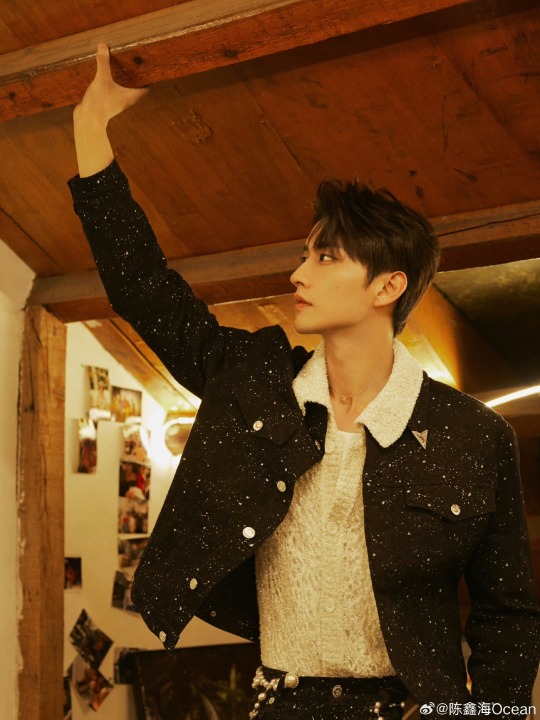
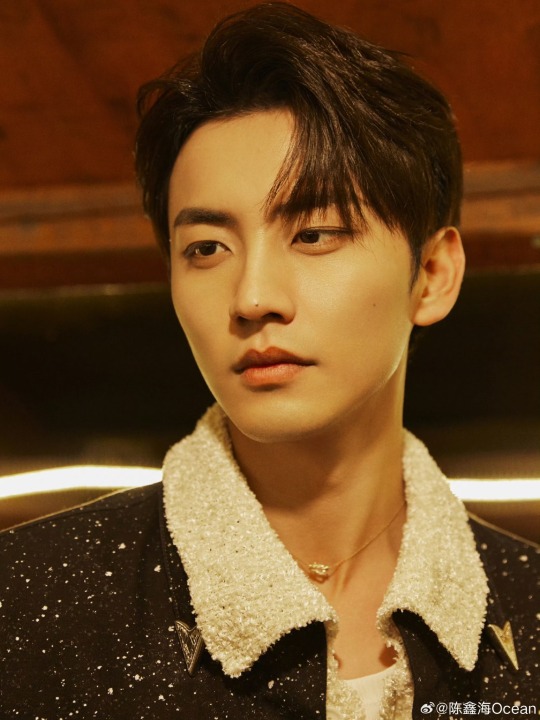
Chen Xinhai for the 7th anniversary of iQIYI split accounts dramas
2 notes
·
View notes
Text
.
yang chaowen is really a sensitive kid... man he brings out renyu's song's feels and then brings up ylq to relate to the lyrics bc he knows his friend isnt getting as much appreciation as himself. (this makes even more sense after ylq said he had been crying before ycw went onstage and ycw was comforting him... and then after ycw came off the stage, it was time for ylq to comfort him from crying TT) Their friendship is really something. But then ycw saying he just gets ripped for getting screentime for crying all the time ouch but i dont get the feeling that hes doing it for attention but maybe im becoming partly biased towards chaowen :)
Lol the fact that they focus so much on xzx and how hes favored by gjm but feels like it's unfair to be treated uncomfortably by other trainees as a result... all i can say is, what do u expect, of course the other kids will be salty, their lives are on the line and theyre getting nothing close to the attention you are, so unfortunately u cant win everything :(
Lol I see why everyone on twitter is annoyed at gjm... Jackson is literally trying to say something meaningful and mentor-like to su er and gjm literally interrupts with his own opinion.... jackson is like unable to finish his thought. and then when Cheng xiao is actually trying to give ma haowen advice, gjm just goes WELL I DISAGREE, THIS IS RENYU'S FAULT and everyone's like wtffffff???? And then he starts saying people can help Xinhai with his terrible dance (ouch) but renyu didnt help haowen sing and Huang enyu MY CHILD just goes: but dancing and singing are different....... and I'm just smh.... gjm really shouldnt act like he knows everything when hes the only mentor with zero actual relevant experience :( Poor renyu literally looks like hes about to burst into tears, ma haowen looks so sorry and appalled renyu's getting yelled at and none of the other mentors seem to agree with gjm lol
lets appreciate renyu’s song, its really good!!!
Lol this whole mentor segment is a mess but man chaowen and renyu won a lotta votesss ayyy
I think xue en seeing hwh as a pro rapper shows him humbling himself, since hes technically a more seasoned and popular idol performer
Cheng xiao fangirling over xue en I mean SAME hahahahahahaha awwwwww yzx being soooo genuinely happy for xue en is the cutest!!! Aw cto friendship and xue en crying :’) actually one thing ive noticed i feel like yzx seems like a genuinely kind and cheerful friend, maybe people are bashing him bc he pushed off some leaderly responsibilities to lin mo in the last round but maybe hes just not someone to take on a strict leader role (looks at aj from afo...) and realized that since lin mo has such experience and is really good at it, it makes sense to respect his experience and skill and let him take on that role. of course its unfortunate that means lin mo worked extra for less recognition, but i think it seems like yzx really respected and admired him so im hopeful what happened wasnt due to mean intentions
watching chen junhao feeling lost oh man :/ maybe he hadnt fully prepared himself for the idol life when first coming on this show. its unfortunate reality that in this kind of idol survival show, the focus is more on stage presence and face and performance, rather than the music itself. Hopefully he really feels that hes found a path forward through this performance. This is a really real way to present him but I'm sad theres not as much focus on li chenxu when this is hissss song
Man both the self composed songs are really good!! Mann them making this song a dance song is really hard to watch for li chenxu bc its makes it hard for him to shine at his own song which is sad :( also lzx's rap is questionable lol but cjh's vocal part in the middle part is so emotional, I hope he felt like he was able to express himself fully there
Lol does gjm not realize they didnt have a choice to not dance. Lollllll cheng xiao literally said they had too much to do and tried very hard but he didnt listen.
Aww jackson teaching them about team work :') o gosh I have PTSD about jin fan getting classified as a vocal now after uuu..... also not surprised the entire segment was about sxl and even the judging portion lol....
Oof Jin fan's voiceeee I love
Man why does Jin fan always get stuck in not dance songs ><
more appreciation for xu zhaohao vocals pls!!! imo sxl has a poor attitude :/ he doesnt perform calmly under pressure and isnt doing well at making a good atmosphere for practice
LOL why do i feel like lin mo is always saying "song" things hahahah hes really a kid
but mannn yan an just walking into the elevator is so oof
Aw duan xuyu is too nice... but I guess this is the leader in him coming out
Aw yan an immediately encouraging xikan when he lost the center to him
Lolll xikans little “heheh” when he won
Mannnn ngl even tho yan an leaves the show, I kinda wish he had a bigger role in this perf bc it's literally like his jam.... chinese style influenced dance.... I wish he had at least 1 memorable dance move, like I feel like Luo Joe already had one in the last perf and he has one again here (and hes very talented and he deserves recognition!) but yan an has yet to really show anything and im scared hes gonna just disappear soon :/
They all did so well tho!!! Truly a group of dancers. Really made me want to rewatch the whole thing immediately. altho the beginning I cant unsee the lin mo meme LOL
and xikan did really well!! His stage presence is real. And hes put effort into his facial expressions
Luo Joe being cute is iconic
Aw yan an cheering on lin mo when revealing his votes!!
Aw I'm surprised 100 ways kids didnt get more votes.... lol ngl i feel like this show is just randomly adding vote bonuses in for random reasons not prespecified for kids they like.... cough gjm yet again
but oo the next ep looks fun hahahha im excited for a happier ep thats not as stressful.
Ycw keeping it real 2020: "im not good at controlling emotions.... i hope if you want to cry or laugh do it loudly, dont care about what other people think"
ok so maybe im liking more new kids than i expected, but i think thats a good thing that the show is making them likable and some kids are able to stand out! honestly i realized I kinda can see why they eliminated so many to begin with. It's sad but also kinda nice tbh (ouch, i know) bc if they really got rid of the ones who have less skill, it makes it easier for the others who dont have to teach from zero (cough lin mo) And then those with skill get to have at least 3(?) stages, unlike qcyn where jin fan got eliminated after only doing 1 silly stage lol The skill level of the stages is also raised, like there's multiple groups of almost all people who are well qualified. im sure the kids are happy that they get to do more stages, im sure that means a lot to them.
At least on snzm they attempt to give most trainees a positive light and give screentime to more than just the top 10 trainees. and they allow someee time for vocals, dancers and rappers to get appreciation (even tho dancers are still dominating lol)
but yea honestly I disliked the judging on pdc2019 too tho so at least the judges here can be supportive... at times. it is SUPER biased and gjm is very vocal despite his lack of knowledge tho lol
it's so bad bc I feel like my standards for shows are so low at this point. my standards get lowered with every show I watch. It's like I guess the snzm songs are okay bc I hated the ones on afo more so at least the stages aren't thattt bad lol At least the rules/general setup aren't as terrible as they were on afo..... at least the camera time isnt as biased as it was on qcyn.... sigh the show isnt doing great, and itd be best if the show would help the tygers get more popular, but I guess its prob better than just doing nothing at star master lol.
qcyn was just painful to watch from "spirit of the knight" onward bc momo literally was buried, mistreated, disrespected and taken advantage of. at least on snzm he gets some screentime and positive recognition.....
tbh i like snzm, maybe thats an unpopular opinion, but at least there have been some really great stages, where the kids really get to shine. at least i can confidently say that bc of snzm, i have met some new kids who i will be sure to follow for new music moving forward :)
5 notes
·
View notes
Photo
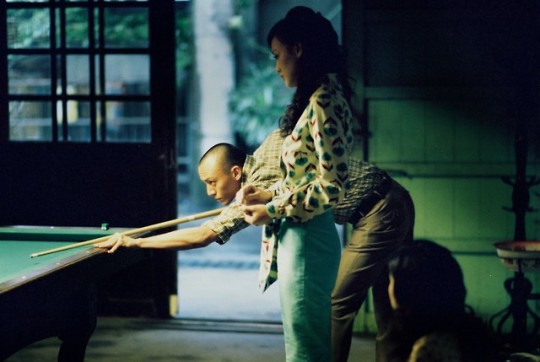
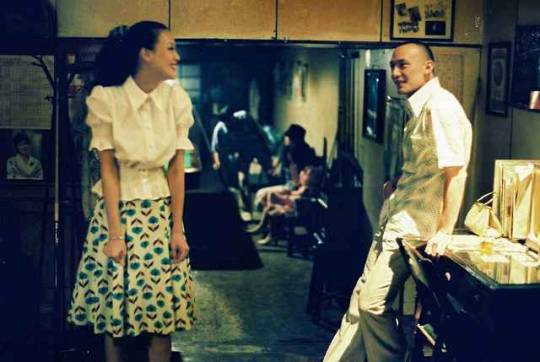
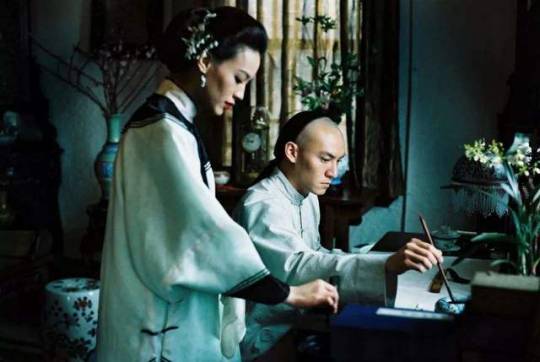
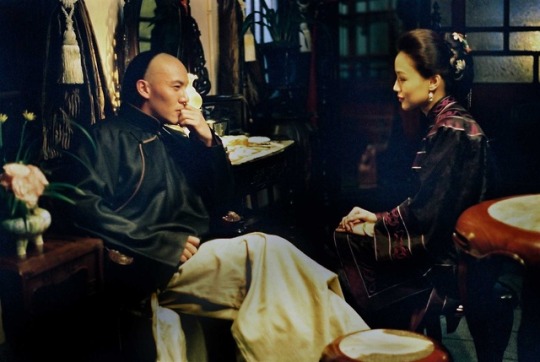
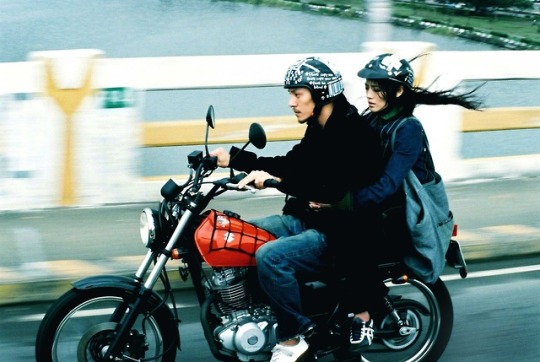
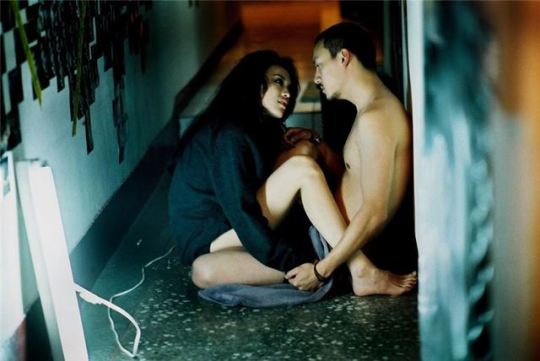
Three Times 最好的時光 (2005, dir. Hou Hsiao-hsien)
The omnibus form to which Three Times reverts was, of course, the hallmark of the Taiwanese New Cinema. Like such episodic films as In Our Time (1982) and The Sandwich Man (1983), Three Times was conceived as a trio of thematically related tales about “growing up,” by Hou and two others, Hwarng Wern-ying and Peng Wen-chung---no doubt an update of the “initiation” films crucial to Hou’s early career. But funding for the project, which was to focus on the “musical memories” of each director and how they relate to love, fell through, and Hou rescued it by making all three stories, using the same actor and actress (Shu Qi and Chang Chen) to play similarly named characters (e.g., Chen; M. Chang; Zhen) in each.
James Quandt, “Three Times Three: A Certain Slant of Light in the Films of Hou Hsiao-hsien”
What is our best time?
It is not because it is the best that we are so sentimentally attached to it. A time becomes the best because it disappears forever and can only be reminisced.
Three periods of time are delineated in the film---Summer 1966, Spring 1911, and Winter 2005.
In 1966, the Cultural Revolution broke out in China. What happened in Taiwan, the Southern island far away from China?
[...]
Of course, those teenagers knew nothing about revolution and war. They could only see girls and their dreams, a dream of love.
In 1911, with the Xinhai Revolution, the Great Qing Empire ended and the Republic of China was established. It had already been seventeen years since the Qing had ceded Taiwan to Japan.
[...]
In the film, the courtesan’s lack of freedom---she wants to redeem herself and get married---is linked to the man’s determined pursuit of freedom. They have their shared dream, a dream of freedom.
[...]
In 2005, this is contemporary Taiwan (here and now).
The here and now will be presented through a young woman suffering from epilepsy. She will die in 2010 at the age of thirty. The here and now presented in the film suggests ephemerality, a dream of youth.
Chu Tien-wen, Three Times Background Notes
63 notes
·
View notes




